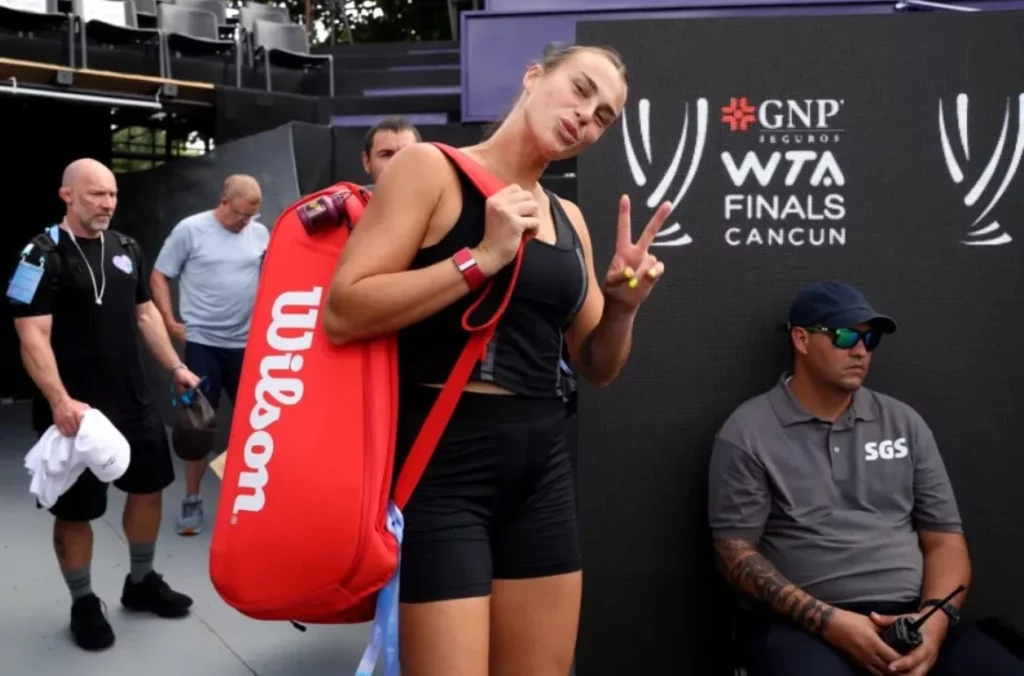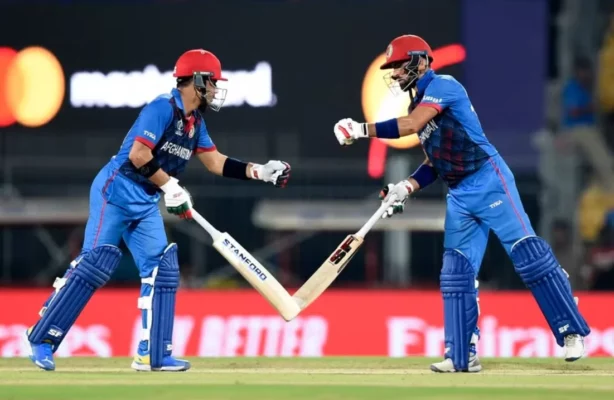
The WTA Finals, one of the shining jewels in the crown of women’s tennis, has recently come under intense scrutiny. The leading voices of dissatisfaction? None other than the athletes themselves, spearheaded by the vocal World No.1 Aryna Sabalenka.
Over the years, the WTA Finals have witnessed various venues, each with its unique challenges and merits. But recent decisions regarding its location and the organization’s subsequent management have sparked controversies.
| Year | Host City | Notable Concerns |
| 2019 | Shenzhen | Event not held due to COVID-19 |
| 2020 | – | WTA’s decision over Peng Shuai |
| 2021 | Guadalajara | Organizational challenges |
| 2022 | Fort Worth | Poor attendance and venue issues |
| 2023 | Cancun | Late announcements and venue concerns |
The Current Scenario: Cancun Takes the Stage
When Cancun emerged as the latest host for the coveted WTA Finals, expectations were understandably high. This pristine Mexican location, however, has not been without its issues. The most prominent grievance is the choice of venue—a temporary arena which hasn’t found favor with the athletes.
Sabalenka, after her resounding victory against Maria Sakkai, articulated her concerns:
“It’s just not acceptable to me with so much on the line and so much at stake” – Aryna Sabalenka
She further elaborated on the circumstances, drawing attention to the fact that the players had scant time for preparation. Having only practiced on the court a day before her opening match was far from the norm for such a prestigious event.
The Larger Picture: What’s at Stake for WTA and the Players?
The criticisms thrown towards the WTA Finals’ organization are not isolated to venue concerns. Over the years, there have been deeper underlying issues that have caused discontent:
- Last-minute decisions: The recent trend of late announcements regarding the host city has caused logistical challenges and uncertainties.
- Player safety: Sabalenka voiced a common concern regarding court conditions.
“To be honest, I don’t feel safe moving on this court a lot of the time, the bounce is not consistent at all” – Aryna Sabalenka
- Economic and political considerations: The WTA’s relationship with certain host cities, especially against the backdrop of the Peng Shuai incident, has raised questions.
A Glimpse Into the Future: Possible Locations and Changes
Looking ahead, there have been whispers of Saudi Arabia expressing interest in hosting the upcoming WTA Finals. While this provides an avenue for a potential new partnership, it’s not without its controversies, especially considering the country’s track record on women’s and LGBTQ+ rights.
As the one-year contract with Cancun approaches its conclusion, all eyes are on the WTA to make decisions that prioritize both the players’ needs and the sport’s reputation.
The Road Ahead
It’s clear that the WTA Finals are at a crossroads. With players like Sabalenka taking the lead in highlighting the organization’s issues, there’s hope that these concerns will pave the way for better, more player-centric decisions in the future.
Only time will tell how the WTA responds. But one thing is certain: the players, stakeholders, and fans alike are eagerly awaiting the next chapter in the illustrious history of the WTA Finals.

WTA Finals 2023: A Snapshot of the Premier Event
One of the most awaited events in the women’s tennis calendar, the WTA Finals, is currently underway. Taking center stage in Cancun, Mexico, this year’s edition promises high-octane action between some of the best players in the world.
Key Dates and Venue:
- Start Date: October 29
- End Date: November 5 (finals)
- Location: Cancun, Mexico
Initially, Karolina Muchova secured a spot among the elite eight. Unfortunately, a right wrist injury forced her to step back, opening the door for the talented Maria Sakkari as the first alternate. The singles draw now comprises:
- Aryna Sabalenka
- Iga Swiatek
- Coco Gauff
- Elena Rybakina
- Jessica Pegula
- Marketa Vondrousova
- Ons Jabeur
- Maria Sakkari (replacing Karolina Muchova)
Group Divisions
The singles players are divided into two distinct groups:
Bacalar Group:
- Aryna Sabalenka
- Elena Rybakina
- Jessica Pegula
- Maria Sakkari
Chetumal Group:
- Iga Swiatek
- Coco Gauff
- Ons Jabeur
- Marketa Vondrousova
Tournament Structure
The WTA Finals employs a round-robin format. The eight participants are divided into two groups, with each player competing against every other player in her group. From there, the top two players from each group, based on match wins, move on to the semi-finals. The semi-finals are then structured such that the player who finishes first in one group faces off against the second-placed player from the opposite group. The winners of these encounters will meet in the grand finale, competing for the esteemed title.







